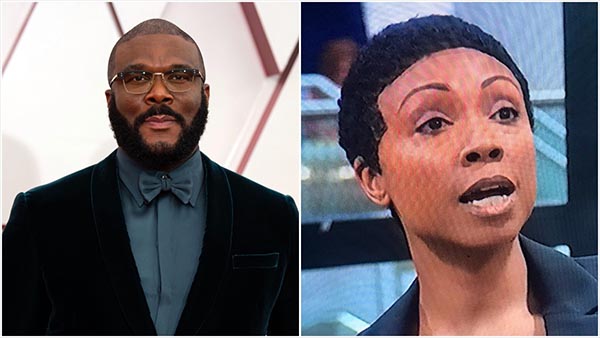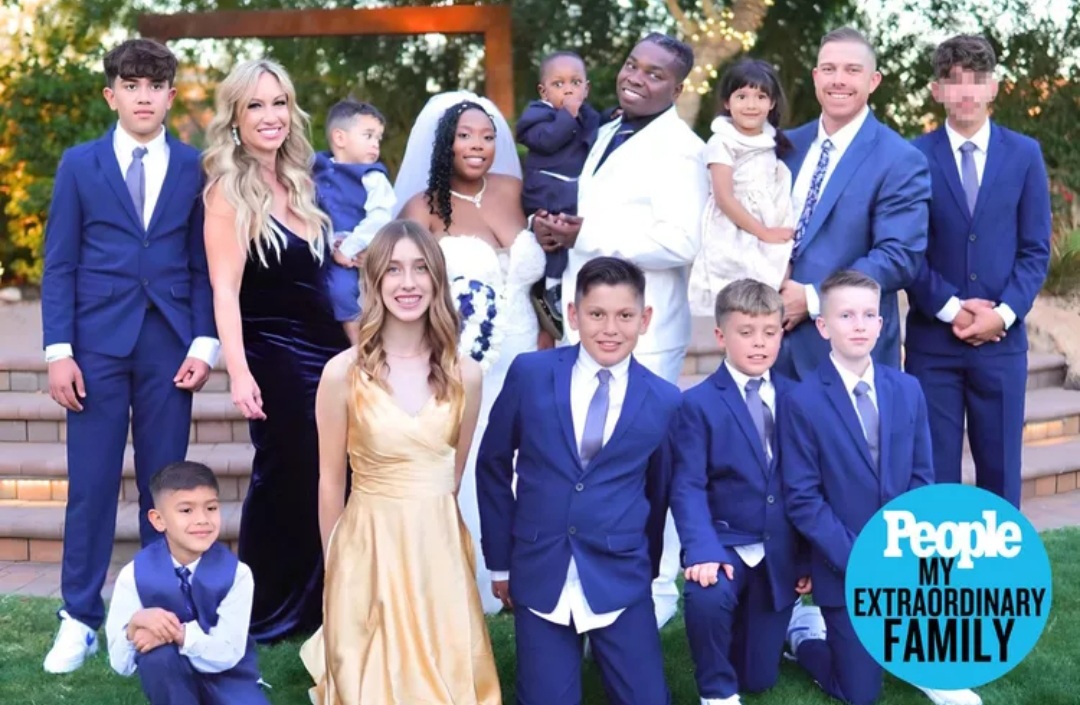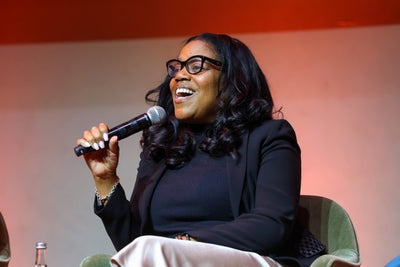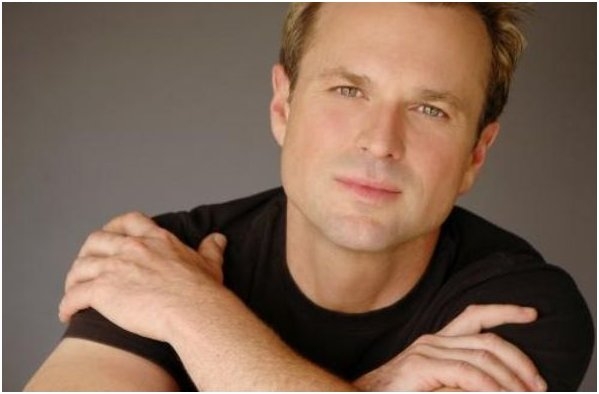
by Michael P Coleman
If Charlie Chaplin and Patti LaBelle had had a son, he would have been Sam Harris.
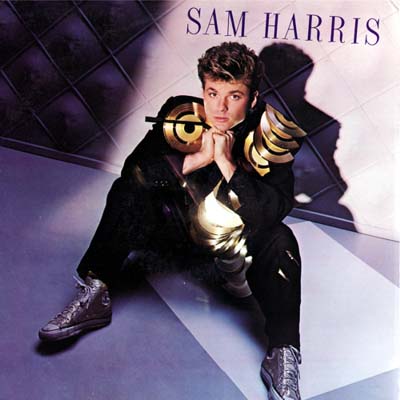
More recently, national television audiences got a reminder of Harris’ vocal prowess when Oprah invited him to sing on her daily talk show just after the September 11th attacks. Harris more than held his own, almost stealing the show from gospel star BeBe Winans.
Harris wrote about that experience and many others in his sometimes moving, sometimes hilarious book Ham: Slices Of A Life. If you’re a fan of David Sedaris’ writing, you’ll love Harris’ collection.
In revisiting his music to prepare for our conversation, the truest words I could come up with to describe Sam Harris are “Damn, that white boy can sing!”
Watch Sam Harris nail “Over The Rainbow” on Star Search.
I caught up with Harris recently, and he graciously shared the story behind the book, as well as anecdotes about friends and colleagues like Aretha Franklin, Liza Minnelli, Donny Osmond, and Frank Langella. He talked about the mercurial nature of the entertainment business, the post 9-11 moment when he had to face his own bigotry, and his victory over alcoholism. He also chatted about his newer music and his brilliant new stage show, Ham: A Musical Memoir.
This conversation has been edited.
I cannot tell you the last time I laughed out loud reading a book like I did reading yours. When did you discover you had a gift for writing in addition to your obvious singing and performing gifts?
Thank you very much! I’d never written a book before, but I’ve written for the stage and for television. I do a lot of comedy and monologue in my concert shows. I had been writing little stories here and there, and I shared a few of them with a good friend of mine, Frank Langella, the wonderful actor. He said “You really need to be doing this. You need to be writing.” He told me to write without thinking about what it’s supposed to be or where it’s gonna go or whether anybody’s ever going to read it. So I just started writing. Before I knew it, I had 80 or 90 pages. It all happened very fast.
You write about your meeting with one of your idols, Aretha Franklin. Your story is warm and funny, and heartbreaking. I’m curious about whether you had any subsequent interaction with Aretha, and whether she’s had a chance to apologize. You experience with her was brutal.
It WAS brutal! And I was a kid! I was green and young and didn’t know how to speak up for myself or put my foot down. Meanwhile, the show had to go on in the midst of all of that craziness. That’s all I knew — that’s how I had been thinking and working for my whole life up until that point. We’ve happened upon each other several times throughout the years, but I don’t think she has any recollection of it. I think it was a really tough time for her. And I certainly didn’t bring it up. She’s still my idol. In spite of all of that, she’s somebody who influenced me greatly and who I look up to. It’s dangerous when you meet your idols because they have a lot to live up to. In this case, she was doing what she needed to do for herself, and I had to move past that.
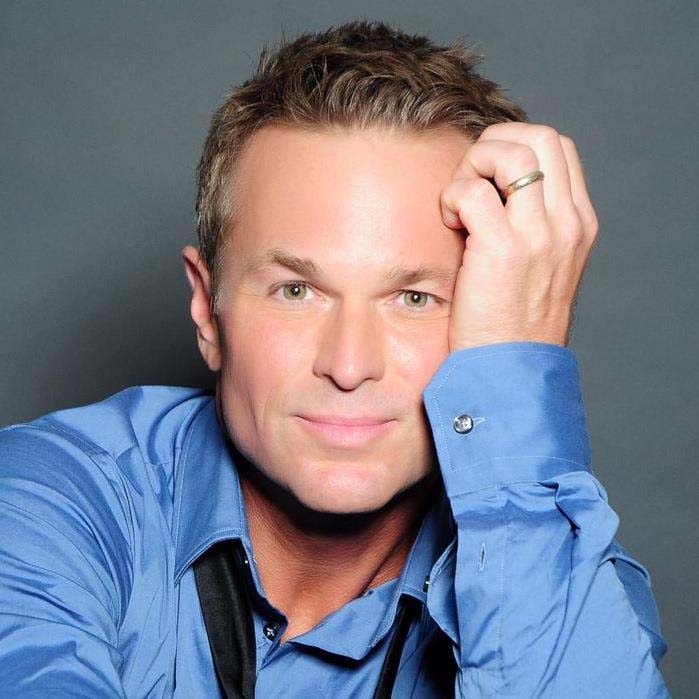
Our relationship was sort of…I don’t know how to even say it. It was an unspoken kind of bond between us. I know with my relationship with my husband Danny, sometimes it was threatening because my relationship with Liza was so “inside”. It was and is very deep.
Let’s talk about another relationship you write in depth about. Of your father you wrote: “My dad was a natural salesman with magnetic social skills and a good old boy charm coupled with a gift of telling dirty jokes. Everybody loved him.” After reading your book, I could describe Sam Harris the same way. Do you see the similarities between you and your dad?
There are some, certainly. The last chapter of the book really has a resolve with my father. Like most of the people I grew up with, I had parents who were very young, and my father was very focused and ambitious. In the years since, my father has become this extraordinarily loving, emotional, intimate person. He was always there for me, but he’s become available on an emotional level in a way that’s really extraordinary. He’s a great grandfather to my son. Whatever walls were there, whatever he needed to do to protect himself, it’s all melted away. It’s about family for him. Danny is another son for him. It’s really a remarkable relationship. I’m very, very fortunate. In many ways my father was always there for me and supported me. Sometimes the messages were mixed, but the underlining thing was that he taught me to pursue my dream and go after it and not let anything stop me, and he helped me when he could.
You wrote about riding in a cab immediately after 9-11, and described the cab driver as appearing to be of Arab descent. You wrote: “For the first time in my life, I understood true bigotry and a hate born of fear.” With your having grown up gay in rural America, it struck me that you had experienced hate — homophobia, specifically — that was born out of fear, but that it took that experience in the cab for you to really understand it. Describe that moment for me.
It was foreign to me. I had never hated anyone based on anything. And having experienced hate based on fear, I was particularly open to everyone. It took me by surprise, and frightened me about myself. Then the cab driver offered us a piece of gum, and something so innocuous as a piece of gum, and the ridiculousness of my fear — what if it’s poison? what if it’s anthrax? what if he has a mission? — I had all of these outrageous thoughts going through my head. By taking the gum, as silly as that sounds, it was my way of overcoming my fear. I had to make a choice in the moment, and that was “Do I become someone who is propelled by fear and who acts out on fear, or do I strike it down as soon as it surprises me?” The best way we succeed in overcoming the prejudice that’s based on other people’s fear is by leading a good, happy life and not repeating it and not returning it, and going forward breaking that chain. That’s what you have to choose to do.
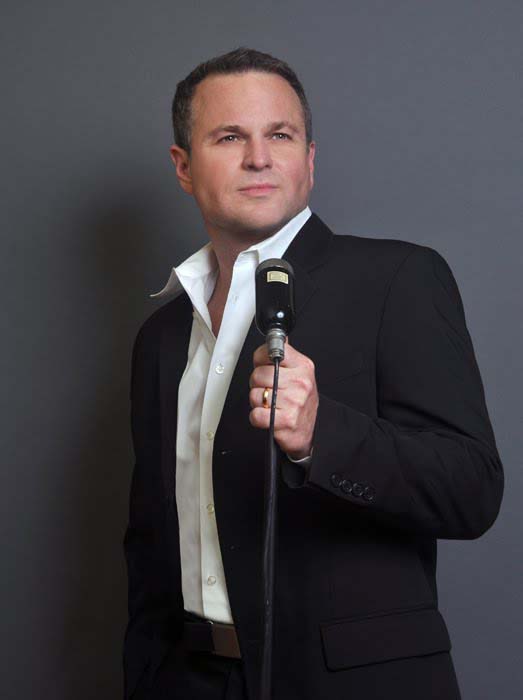
Sometimes it was more than that, and sometimes it was mixing in other things, or there were pills involved or something. The hardest thing about being an alcoholic is the secrecy and the lies. The way that you try to cover it. The way that you sneak, or the way that you lie to yourself and all of those around you. And so, when I finally got to a place where I couldn’t take it anymore, it all came out. I’m 11 and a half years sober now.
Growing up in Detroit, we knew you as “the white boy who is blowing it out on ‘Star Search’. What was it like for a white kid from rural America to be embraced by black audiences singing Patti LaBelle’s arrangement of “Over The Rainbow” at the Apollo Theatre?
There is nothing better than a black audience! They respond viscerally and emotionally and are so loyal. it was amazing to me to be embraced by them. I tell a story in the book of going to “Colored Town” and was exposed to the [black] church. It pierced me and opened me up to something that I think had been there. And I think it was about needing to belong to a tribe. I was fascinated by Judaism, I was completely attracted to the black church and culture, and I think it was feeling like an outsider and looking for a tribe, a group. I wasn’t going to find a gay one, because they didn’t exist. But what astonished me and felt true to me about the black church, and black R & B and pop singers that I loved was that it was so in touch emotionally. It was a cry in [the music] that came from generations of oppression that was then expressing itself in art. So when I heard this and was touched by it, it just felt natural to me, more natural than my own tribe.
It’s one thing to present yourself in an authentic way, but it’s quite another to have that presentation be so warmly received.
You said the word: “authentic”. If it hadn’t been authentic, it wouldn’t have been embraced. The audience would have said “Who does that white boy think he is?” But because it was authentic and it was true, it was embraced. The audience said “He understands.”
How did you wind up on the legendary Motown record label? I would imagine you had several offers for recording contracts.
You’re right — there were several labels who were interested, and some of them were huge labels. The idea of being a white artist on a historically black label was so thrilling to me, because that label carried most of the artists who had influenced me, and they were saying they got me and wanted to work with me. I’m not sure that some of the direction we went in was the closest to who I was as an artist. I had emerged from “Star Search” as something original, and then I was encouraged to do things that were sort of outside of my box. There was a lot of dance music and things that Motown felt were necessary to break into the pop world. Interestingly 25 million people a week [had been] watching me do what I did, but [Motown] wanted to change that.
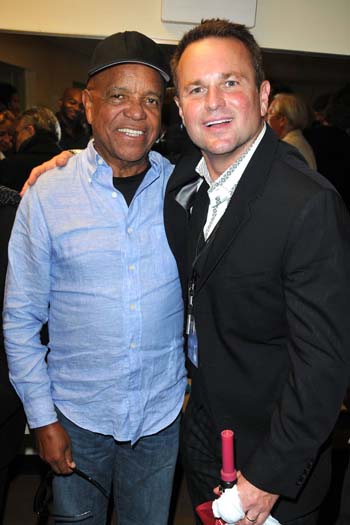
I met him many times. He was a huge supporter until he found out that Motown didn’t own my publishing, and the support pulled back a bit after that. You’ve heard the stories…they owned a lot of artists lock, stock and barrel for years and years and years. But I’ve seen him many times since my Motown days and I love Berry Gordy. He changed American music and he’s incredible.
I want to ask you about your more recent music. I love your “Suitcase Of Memories” collection. You may have done my favorite cover of “The First Time Ever I Saw Your Face”, and your “Moon River” is sublime.
I will give the credit to the producer and orchestrator Peter Mack for “Moon River”. He suggested I do it, and he created a heart stopping, wrenching orchestration, an ambient environment for me to just drop my voice into. I did two albums with him, Different Stages and Standard Time, and many of those songs are on that Suitcase collection. He was a genius. He brought out so much in me and taught me about authenticity. We recorded those songs live with an orchestra, and when I went back into the studio to fix things, Peter insisted that what had happened in those moments was the truth, and he wouldn’t mess with it much. The imperfections are what made it authentic, he felt. He didn’t let me change a lot of things.
Listen to samples of Sam Harris’ Standard Time and Different Stages.
Talk about your new live show.
It emerged [after] the book came out. I was doing readings in bookstores and libraries and things like that, and I suggested to [the publisher] that I go into theaters in different cities and read the stories. So I had to pluck certain ones, and change the order so it was more chronological. [As I read them], I started to play them out, putting the voices of the characters in and creating a setting, and I wanted to add music, so I started creating a show. When I was doing a reading in New York, a couple of Broadway producers came forward and said I was close to having a show, even though I had a book in my hand. They developed it, and I worked with Billy Porter who directed it, and worked with my music director and created a play. Now, instead of talking about characters, I play them. I play a 90 year old woman in the church. I play my mentor Jerry Blatt who’s this very New York Jewish high energy man. I play my father. I play my son at one point.
Watch Sam Harris in Ham: A Musical Memoir.
Do you have new music on the horizon?
I’m not working on a new album right now, but there are original songs in the show. There are songs that I’m really, really proud of. One of them is called “A Broken Wing” which is the 11 o’clock song that follows the story about my psychology teacher who saved my life, and it goes into a scene with that song.
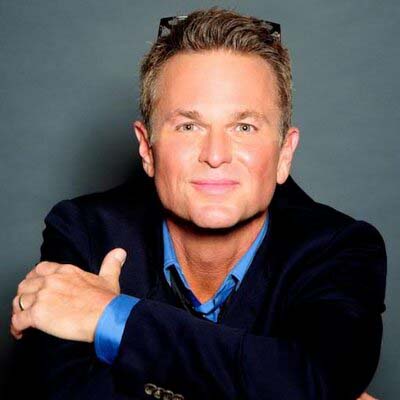
A comeback? To what? I’ve been in places where I’m doing a lot or making a lot of money, or doing something that could be defined as successful, but I wasn’t happy doing it. And then there were times when I’ve been very happy doing something small that was true to myself. It depends on how you define success. A life and a career are in cycles. They go up and down and sideways. Having been in show business all of my life, you recognize that. Lately I’ve been painting these things that are going up in my house. I find that I”m a good cook and a good gardener. When you’re a creative person, it has to find its way. So I wrote a book, and I’ve got the show, but I’m also a dad now, and I don’t want to be gone as much as I used to. The most fulfilling thing about my life right now is my family. Meanwhile, I’m a creative person who needs an outlet, and I hope I’ll always have one of those.
Sam Harris’ Ham: Slices Of Life is available at iBooks and amazon.com. His brilliant music catalog is available at iTunes.com.
Information on Harris, including his new stage show, is available at samharris.com.
Michael P Coleman is a Sacramento-based freelance writer who has always believed, strongly, that sugar don’t bite. Connect with him at michaelpcoleman.com or on Twitter: @ColemanMichaelP
